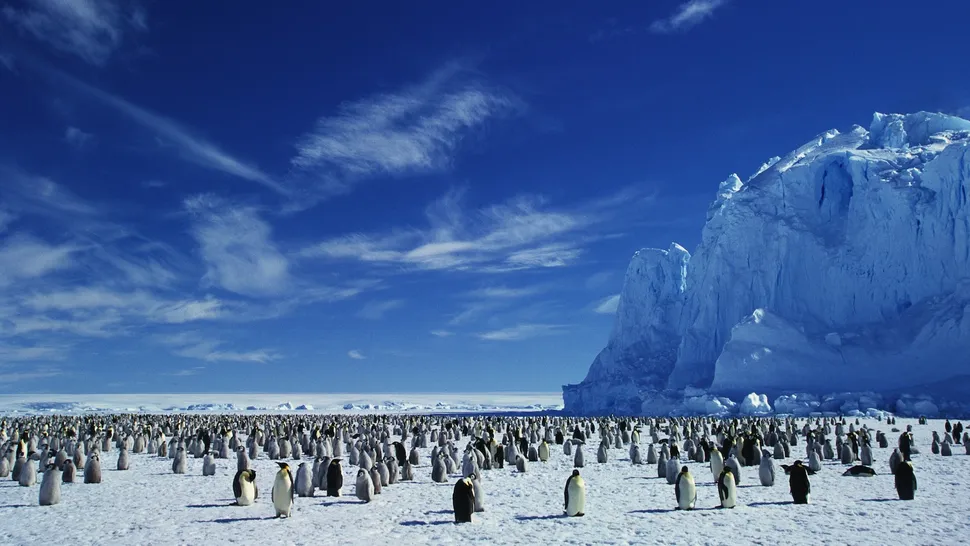Antarctica- Why can't I visit?
Ever scroll through incredible photos of Antarctica—vast white landscapes, towering blue icebergs, and colonies of fearless penguins—and think, "I have to go there"? It’s a natural reaction. The seventh continent is the closest thing we have to an alien planet on Earth. But then you do a quick search for flights and hotels and... nothing. You can’t just book a flight to McMurdo Station and find an Airbnb.
So, what's the deal? Is Antarctica completely off-limits to everyone but bearded, parka-wearing scientists?
Well, yes and no. Let's get one thing straight: tourism in Antarctica does exist, but it's unlike tourism anywhere else in the world. It’s incredibly expensive, highly regulated, and structured in a way that prioritizes the continent's preservation above all else. The reason why it's not a casual vacation spot boils down to a few core principles.
First and foremost, Antarctica isn't a country.
There's no government, no official population, and no one owns it. Instead, it's governed by the Antarctic Treaty System, an international agreement that essentially sets the entire continent aside as a scientific preserve. The treaty dedicates Antarctica to peace and science, banning any military activity and putting scientific investigation at the forefront. Without a government, there's no one to build the kind of infrastructure we take for granted—no commercial airports, no hotels, no roads, and no emergency services for tourists.
This leads to the second point: Antarctica is the most pristine, untouched laboratory on our planet.
The ice cores drilled from its depths contain a perfect record of Earth's climate going back hundreds of thousands of years. The air is the cleanest on Earth, making it the perfect place for atmospheric studies. Even the microbes found in the soil are unique. A single tourist wandering off-path could unknowingly introduce foreign seeds or bacteria from their boots, potentially contaminating priceless scientific experiments. The entire continent is a clean room, and the researchers are the only ones with the key.
And finally, there's the simple, brutal fact that Antarctica is actively trying to kill you.
It's the coldest, driest, and windiest continent on Earth. Temperatures can plummet to levels that will freeze exposed skin in seconds. The landscape is riddled with hidden crevasses that can swallow a person whole. There are no local hospitals or mountain rescue teams. If you get into trouble, you're putting the lives of the scientific and support staff at extreme risk, pulling them away from their vital work for a dangerous and complex rescue operation.
So, how do the few tourists who visit actually do it?
They go on highly specialized, permit-holding ships, mostly expedition cruises. These aren't your typical booze cruises; they're more like floating universities. You spend your days in lectures with geologists and marine biologists. When you finally get to make landfall, it’s in a small group on a Zodiac boat, for a limited time, and only at approved sites. Before you step ashore, your boots are scrubbed and disinfected to protect the environment. You're told exactly where you can and cannot walk.
It's less of a vacation and more of a pilgrimage. The restrictions aren't there to spoil the fun; they're there to protect a place that's more important to the future of humanity than any single person's bucket list. It’s a powerful reminder that some places are more valuable as a laboratory for our future than a playground for our present.
About the Author

Hannah Maschke
Hannah Maschke is a full stack software developer based east of Toronto. She leveraged her expertise in Python, JavaScript and modern web technologies to build the Simallo ecosystem, including the user-facing website, custom Telegram mini-app, database, and the administration panel for on-the-go eSIM management. Beyond her work in the travel/eSIM tech space, Hannah's portfolio includes a diverse range of software projects that showcase her passion for turning complex ideas into functional, elegant applications. Hannah is passionate about developing clean code and building efficient and scalable architecture.
